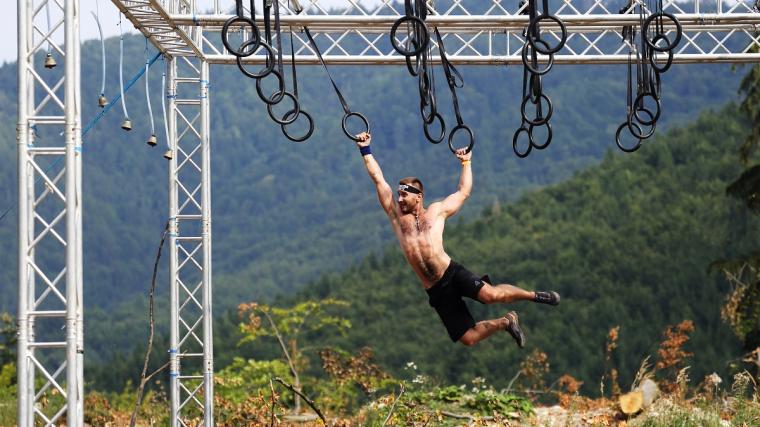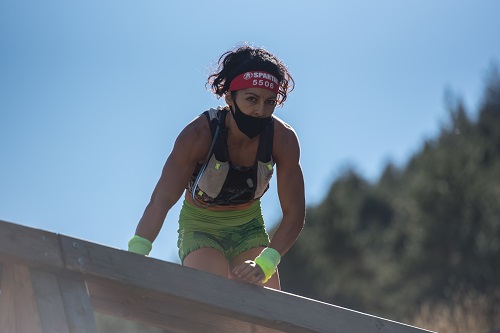
Those who thought cycling was going to replace horseback riding as part of modern pentathlon – well, that ship has sailed. And so have the ships of pillow fighting, drone racing and inline skating, at least for now. The International Modern Pentathlon Union (UIPM), the sport’s highest governing body, has confirmed that obstacle racing will be the tested as a potential new discipline in two events, according to Reuters:
"The UIPM executive board decided to test the combination of the obstacle discipline alongside fencing, swimming and the laser run," the governing body said in a statement. "Testing will begin immediately after the 2022 Pentathlon World Cup Final in Ankara [Turkey] in late June. Following comprehensive testing, the final decision will be taken by the UIPM Congress."
Ian Adamson, president of the Fédération Internationale de Sports d'Obstacles (FISO) also known as World Obstacle, the sport’s highest governing body, notes, “We are thrilled to be collaborating with UIPM on the new fifth discipline. Obstacles have a long history in pentathlon, including the modern and ancient Olympic Games, and introducing obstacle disciplines that are watched and practiced by hundreds of millions of people in over 140 countries presents many opportunities for athletes, spectators, and the global sports audience.”
But the news has not been entirely well received among athletes, according to Matt B. Davis, of Obstacle Racing Media, who has a finger on the pulse of the participants in the sport.
“The immediate reaction from the obstacle racing (OCR) community has been mostly negative. Many feel that the obstacle racing in the Olympics would look nothing like the sport we have today as it would be standardized and sanitized down to unrecognizable levels.”

In fact, it is likely the obstacle racing in modern pentathlon would be contested in a shorter format, since it would need to fit alongside the other four disciplines of the sport (running, shooting, fencing and swimming). In the U.S., the two most popular obstacle racing syndicates are Tough Mudder and Spartan. Both brands offer races in multiple formats and distances, allowing them to be presented in different locations. It is unclear which format of OCR (or which obstacles) would be chosen for the Olympics; however, the UIPM will likely be studying distances, as well as obstacles, closely as it decides what to use as it enters its new arena.
The road to change has been a rocky one for modern pentathlon, beginning after an incident at the recent Olympics in Tokyo that drew the world’s attention – and not in a good way. According to The Guardian, German competitor Annika Schleu, who had been in the gold medal position before the show jumping aspect of the competition, became emotional in the ring after the horse she had been assigned, Saint Boy, refused to jump and shied around the course.
Schleu punched the horse several times and German coach Kim Raisner was also seen punching Saint Boy (and urging Schleu to "really hit" the horse). Raisner was sent home from Tokyo in disgrace, Schleu finished in 31st place and the global outcry (social media played no small part in it), prompted UIPM to conduct a full review as well as to discipline Raisner. (Schleu’s image has not fared well either. It is uncertain whether she will be on the team sent to represent Germany at the Games when they are held in Paris in 2024).
Reaction to the event in Tokyo was swift and succinct. Inside The Games noted that in a briefing sent to members of the UIPM Executive Board, the International Olympic Committee (IOC) said it would "only accept a proposal without riding" for the Los Angeles 2028 Olympic program, set to be decided in December.
And for a sport that values its Olympic position and at a time when multiple other sports are jockeying to be included in the Games, ignoring the IOC's warning was simply too big a risk to take. IUPM in a statement noted the change was necessary, and that modern pentathlon must "present a new, fresh perspective to the TV audience in order to compete with new sports" at the Games.
At the time, it outlined a list of criteria for any proposed fifth discipline, including being low-cost, easily understandable, minimal injury rates and not falling under "another IOC-recognized Federation's governance" – but did not reference any specific sport. UIPM noted the new discipline needed to fit inside their new pentathlon stadium and urban settings, fit within a new 90-minute format and continue the handicap start and continuous event concept.
For a while, the smart money seemed to be on cycling; however, with the IOC’s emphasis on youth-oriented sports (and with cycling already in the Games not only in its own but in triathlon as well), plenty of other sports, including pillow fighting, drone racing and inline skating, began jockeying (heh) for position.
When it came to dropping the equestrian component of the sport, opinion among modern pentathlon participants has been mixed. Reuters noted that British modern pentathlete Joe Choong, who won the men's event in Tokyo, told the Daily Telegraph that removal of the equestrian aspect is "very sad for the sport.”
"Without horse riding, or if we changed it for another sport, it's not modern pentathlon," Choong said. "I don't want to grow up and tell my future kids that I'm the Olympic champion of a sport that doesn't exist." Many modern pentathletes agreed; more than 650 gave Klaus Schormann, the current IUMP president, a vote of no confidence, even going so far as to ask for his resignation – although it is unclear whether another administration would keep riding as a discipline and risk losing the sport's placement in the Olympics.
In The Guardian, however, another British Olympian Greg Whyte, who also won a world silver medal in 1994, said he could understand the change. “I don’t think it is necessarily a bad thing,” he told reporters. “Back in the day, the fencing part alone used to take 14 hours, while in Paris the whole event will last just 90 minutes. All sports evolve, and no sport is immune from change in the modern TV era.”
Davis noted that because OCR could undergo format changes to fit into the Olympics, and because they would not be able to voice their objections to changes, “many OCR athletes feel a solidarity with the pentathletes who are being stepped on without their opinions heard.”
At the same time, however, should OCR ultimately be adopted as the fifth discipline, it would vault the sport onto the largest international stage so far, something Davis notes is consistent with “[Spartan Race founder] Joe Desena’s vision of OCR in the Olympics at any cost.”

